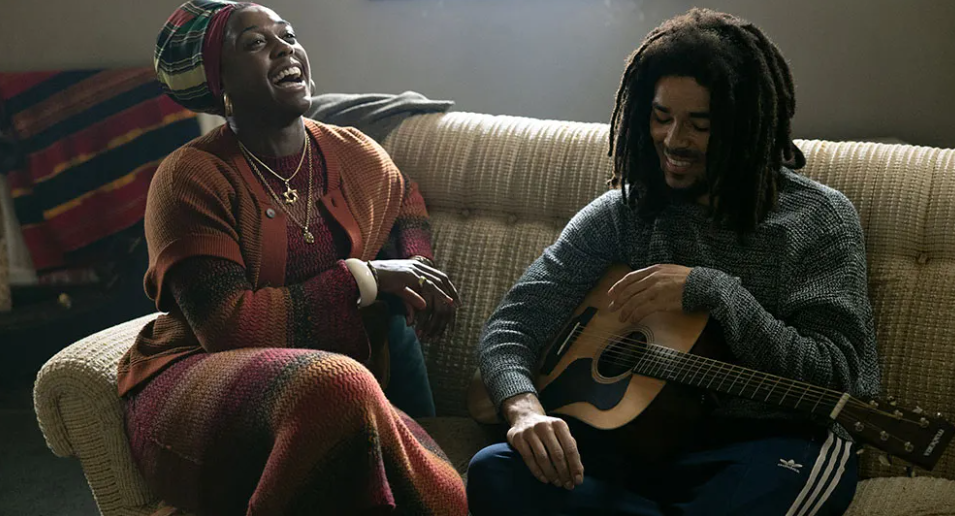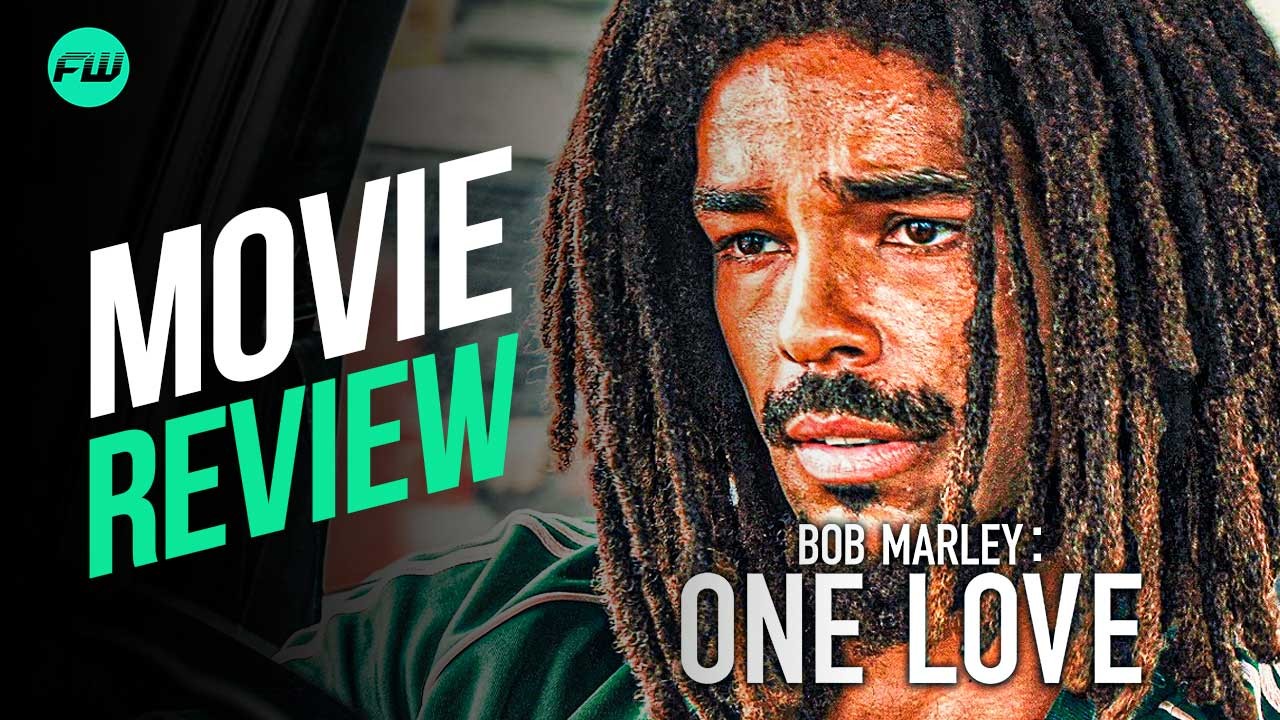I was both excited and worried for Bob Marley: One Love, a biopic about one of the most emblematic figures in Jamaica’s history, who deeply impacted its cultural and political landscape by becoming a pioneer of the reggae music genre and, ultimately, a global icon. Reinaldo Marcus Green being announced as the director instantly caught my attention since, after all, he’s the filmmaker responsible for one of my favorite biopics of the century, King Richard. However, the involvement of multiple screenwriters – Terence Winter (The Wolf of Wall Street), Frank E. Flowers (Shooting Stars), Zach Baylin (Gran Turismo), and Green himself – as well as Marley’s family production company, raised concerns about potential biases and a lack of critical depth.
Bob Marley: One Love Critique

Also Read: Madam Web Review – An Utter Bore
Bob Marley: One Love emerges as a film of contrasts, embodying the very dilemmas I had anticipated. On the positive side, Green succeeds in encapsulating Marley’s philosophical and musical ethos, championing themes of peace, love, and unity. These ideals, which Marley so fervently connected through his songs, are the biopic’s greatest triumph. The emotive, raw power of Marley’s lyrics is seamlessly demonstrated throughout the runtime, offering insight into the creative process behind the creation of many of the authentic, passionate, memorable tracks. These sequences are the best engine for a narrative that really needs some energy to keep moving forward.
The performances are decent across the board, although they never reach an ‘outstanding’ status. Kingsley Ben-Adir (One Night in Miami…) embodies the free spirit of the protagonist, as well as his charisma and vulnerability, but it’s Lashana Lynch (The Woman King) who stands out from the rest of the pack as Marley’s wife, Rita. The actress is both powerful and subtle, capturing the essence of a woman who was instrumental in grounding the legendary artist. The dynamic between them adds a human dimension to the larger-than-life figure at the movie’s center, providing a glimpse into the private struggles and achievements that shaped Marley’s public persona.
However, in its quest to celebrate Marley’s monumental legacy, Bob Marley: One Love falls into the familiar trap of biographical sanitization. The reluctance to delve into the more controversial aspects of the protagonist’s life was expected, but some are just too important to be omitted. The extensive smoking of weed (marijuana) could have served as a rich cultural lesson to viewers who are unaware of its sacred value to Rastafarians, who believe it’s sanctioned by the Bible, aids in meditation, and brings them closer to the divine. Instead, viewers will leave the theater thinking they simply enjoyed smoking for the sake of it, without understanding the deeper meaning behind it or even mislinking it to the skin cancer that ended his life.
The extramarital affairs and numerous children are a topic never really clarified, despite originating an argument scene that comes out of nowhere, since it becomes genuinely confusing to understand what sort of relationship was shared by Marley and Rita. While the film fleetingly acknowledges these facets, it opts for a glossier portrayal that prioritizes idolization over introspection.

This selective narrative focus is further exemplified by Bob Marley: One Love‘s treatment of the singer’s political influence. Despite his significant role in the Jamaican political landscape, particularly his efforts to unify opposing party leaders through music, the movie relegates these accomplishments to mere footnotes. The decision to condense this pivotal moment in his country’s history into that typical textual summary at the end of biopics is a missed opportunity to explore the full extent of Marley’s impact on his nation. These choices not only detract from the narrative’s complexity but also from the authenticity of its portrayal of Marley as a transformative figure.
There are also some flashbacks spread throughout the movie that fail to offer truly valuable information, besides becoming extremely repetitive and distracting. Whether you’re a fan of Bob Marley or not, you’re probably going to be singing along to most of the songs played on screen, but I’m not quite sure how much you’ll truly learn about his life, having in mind that the time span of the film is just a couple of years at the end of the 1970s.
In Conclusion
Bob Marley: One Love navigates the intricacies of biographical storytelling with mixed success. Its commendable focus on Marley’s message and music, coupled with good performances, highlights the enduring relevance of his legacy. However, the reluctance to engage with the more contentious aspects of his life and the oversimplification of his political contributions undermine the potential for a more nuanced, complete exploration. While the movie serves as a vibrant homage to Marley’s spirit and artistry, it ultimately leaves me yearning for a deeper, more critical study of the complexities that defined one of the most influential artists of the 20th century.
5/10
Follow us for more entertainment coverage on Facebook, Twitter, Instagram, and YouTube.


